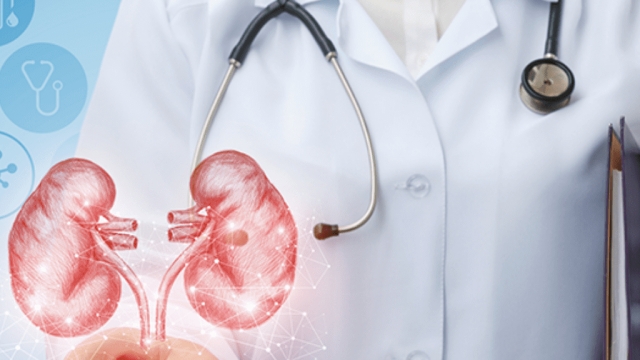Welcome to the intriguing realm of urology, where mysteries unfold and secrets are unlocked to enhance men’s health. Urology, a specialized branch of medicine, delves into the intricate workings of the urinary system and reproductive organs. Through a comprehensive examination of urological conditions and treatments, we embark on a journey to discover the vital role urology plays in ensuring men’s well-being.
From the moment we enter this world, the urological system silently supports our daily functions, yet it often remains unacknowledged until issues arise. Urology shines a light on the complexities of this system, investigating everything from bladder control and kidney health to prostate concerns and sexual function. By exploring and shedding light on these subjects, urology empowers men to actively participate in their health and seek necessary care.
By delving into the realm of urology, we gain valuable insights into the world of men’s health. From understanding the early warning signs of common urological conditions to exploring advanced treatment options, this article will serve as your compass, guiding you through the intricacies of urology’s undeniable significance. Join us as we uncover the secrets that lie within this fascinating field, ensuring that no stone is left unturned when it comes to men’s wellness.
The Importance of Urology in Men’s Health
Urology plays a crucial role in safeguarding men’s health. It is a medical specialty that focuses on the diagnosing and treating of disorders and conditions related to the urinary tract and male reproductive system. By providing essential care and treatment, urologists help maintain and improve the overall well-being of men.
One of the primary areas where urology plays a vital role is in the detection and treatment of prostate cancer. This form of cancer affects the prostate gland, which is responsible for producing seminal fluid. Urologists are trained to identify early signs of prostate cancer through various diagnostic techniques such as prostate-specific antigen (PSA) testing and biopsies. Early detection allows for prompt treatment, leading to better outcomes and improved quality of life for patients.
Urologists also excel in managing and treating conditions like erectile dysfunction (ED). ED can have a significant impact on a man’s self-esteem and relationships. Urologists are well-equipped to identify the underlying causes of ED, such as hormonal imbalances or circulatory issues, and provide appropriate treatment options, including medication or surgical interventions. By addressing ED, urologists contribute to enhancing men’s sexual health and overall satisfaction.
In addition to cancer and sexual health, urologists are also experts in treating urinary tract infections (UTIs) and kidney stones. UTIs can be both painful and disruptive to daily life, while kidney stones often lead to severe discomfort and potential complications if left untreated. Urologists utilize their specialized knowledge and expertise to diagnose and treat these conditions effectively, relieving symptoms and preventing further complications.
To conclude, urology’s role in men’s health cannot be understated. Through their expertise and dedication, urologists play a crucial part in the early detection, diagnosis, and treatment of various conditions that affect men’s urinary and reproductive systems. Their contributions greatly contribute to improving the overall health and well-being of men.
Common Urological Conditions in Men
Erectile Dysfunction:
Erectile dysfunction (ED) is a prevalent urological condition in men. It refers to the inability to achieve or maintain an erection firm enough for sexual intercourse. This condition can be caused by various factors, including underlying health conditions, hormonal imbalances, psychological factors, or certain medications. Seeking medical advice from a urologist can help in diagnosing the root cause and finding appropriate treatment options for individuals suffering from ED.Benign Prostatic Hyperplasia (BPH):
Benign prostatic hyperplasia, also known as an enlarged prostate, is a common condition in aging men. It occurs when the prostate gland grows in size, causing urinary symptoms such as frequent urination, weak urine flow, or difficulty in emptying the bladder completely. While BPH is not cancerous, it can significantly impact a man’s quality of life. Urologists can help manage BPH through various treatment approaches, ranging from lifestyle modifications to medications or, in severe cases, surgical interventions.
Best Urologist In JordanProstate Cancer:
Prostate cancer is one of the most prevalent cancers affecting men. It occurs when the cells in the prostate gland grow uncontrollably. Early detection is crucial for successful treatment outcomes, as prostate cancer often shows no symptoms at its initial stages. Urologists play a vital role in diagnosing and managing prostate cancer. They utilize various techniques, such as prostate-specific antigen (PSA) testing, digital rectal examination, and biopsies, to evaluate the presence and extent of cancer. Treatment options for prostate cancer can include surgery, radiation therapy, hormonal therapy, or active surveillance, depending on the stage and aggressiveness of the cancer.

These are just a few examples of the common urological conditions that affect men. It is important for men to prioritize their urological health and not hesitate to consult a healthcare professional, specifically a urologist, if they experience any concerning symptoms or have questions about their urological well-being.
Advancements in Urology for Men’s Health
Urology is constantly evolving and playing a crucial role in maintaining and improving men’s health. Recent advancements in this field have allowed medical professionals to offer innovative treatments and diagnostic techniques that significantly enhance the quality of care for men facing various urological conditions.
Minimally Invasive Surgeries: One of the notable advancements in urology is the advent of minimally invasive surgical techniques. These procedures involve smaller incisions, reduced pain, faster recovery times, and fewer complications compared to traditional open surgeries. For example, laparoscopic and robotic-assisted surgeries have revolutionized the management of prostate cancer, urinary incontinence, and kidney disorders.
Precision Medicine: Another significant breakthrough is the application of precision medicine in urology. By harnessing genetic data and utilizing targeted therapies, doctors can tailor treatment plans based on individual patients’ specific characteristics. This approach has shown promising results, especially in the treatment of prostate cancer and other genitourinary malignancies.
Advanced Imaging Technologies: Advanced imaging technologies have revolutionized the diagnosis and monitoring of urological conditions. Techniques such as magnetic resonance imaging (MRI), ultrasound, and computed tomography (CT) scans enable doctors to detect abnormalities with greater accuracy and precision. This allows for earlier detection of diseases like kidney stones, prostate cancer, and bladder disorders, ultimately leading to improved outcomes and survival rates.
As the field of urology continues to advance, these developments pave the way for personalized and effective interventions, ultimately improving overall men’s health. It is essential for individuals to stay informed about these advancements and consult with trusted urologists to benefit from the latest innovations in the field.

